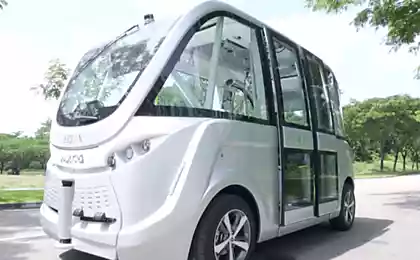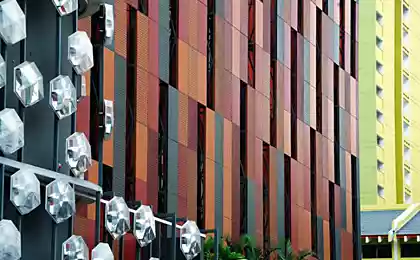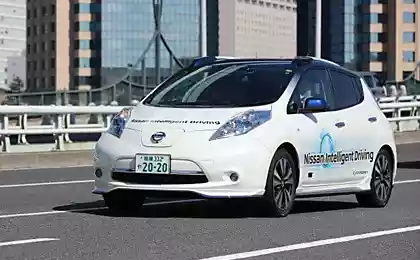481
In Singapore in early 2017 will launch an unmanned bus
In the first quarter of next year, Singapore will start to work Autonomous public transport. We are talking about 15-seater driverless bus that will ply the route between the campus of the Nanyang technological University (NTU) and the hotel's eco-business Park CleanTech. The length of this route is 1.5 km.
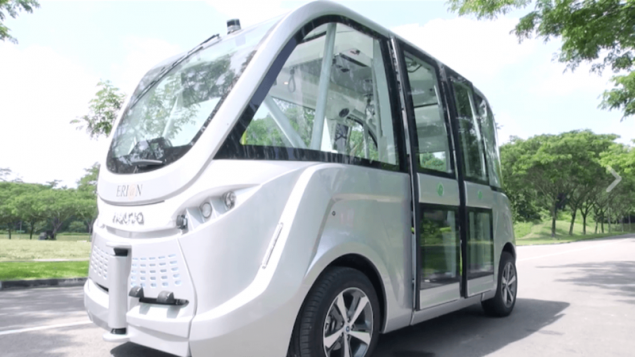
Representatives of NTU posted to Facebook a video showing a brand new Shuttle with the air conditioner and said they were going to launch the UAV in the next semester.
The bus is called Arma, it was developed by the French company Navya. On the manufacturer's website indicated that Arma uses lidar sensors and cameras to detect obstacles in its path, and transmits information about its location to the base station using the GPS, allowing the operators in real time can find out where the bus is. The Shuttle runs on electricity, its battery can last for about half a day — it all depends on road conditions.
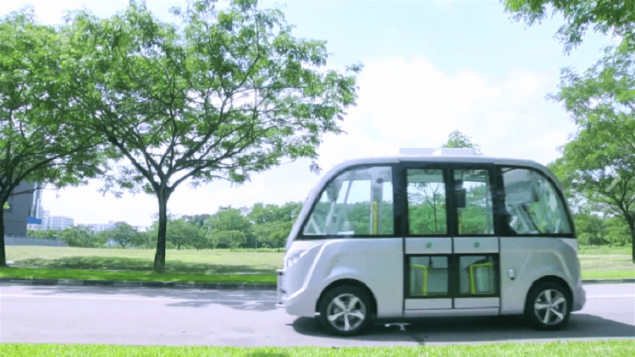
Arma is not the only driverless bus on this route. Between the NTU CleanTech Park and must also begin to run two full-size unmanned bus. The buses are equipped with lidar and other smart technologies, under which University scientists write software.
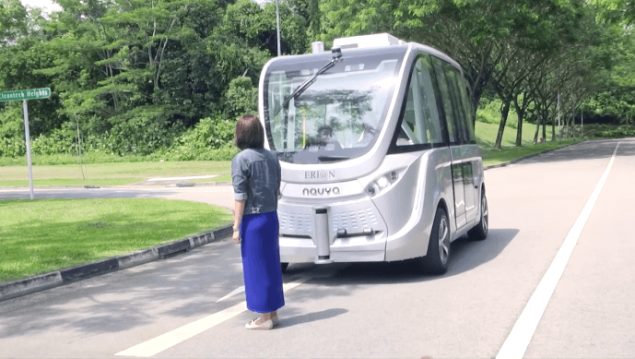
Autonomous buses of small capacity is already as Australia, Finland, Gldani and Switzerland. For Singapore, unmanned technology is also not unusual. August NuTonomy local startup, founded by graduates of MIT, started the world's first open testing service of the Autonomous taxi. During testing, passengers can use the services of robotaki free. Since September the company has entered into a partnership with Grab — the Asian equivalent of Uber. published
P. S. And remember, only by changing their consumption — together we change the world! ©
Source: hightech.fm/2016/12/22/arma-driverless-bus-in-singapore

Representatives of NTU posted to Facebook a video showing a brand new Shuttle with the air conditioner and said they were going to launch the UAV in the next semester.
The bus is called Arma, it was developed by the French company Navya. On the manufacturer's website indicated that Arma uses lidar sensors and cameras to detect obstacles in its path, and transmits information about its location to the base station using the GPS, allowing the operators in real time can find out where the bus is. The Shuttle runs on electricity, its battery can last for about half a day — it all depends on road conditions.

Arma is not the only driverless bus on this route. Between the NTU CleanTech Park and must also begin to run two full-size unmanned bus. The buses are equipped with lidar and other smart technologies, under which University scientists write software.

Autonomous buses of small capacity is already as Australia, Finland, Gldani and Switzerland. For Singapore, unmanned technology is also not unusual. August NuTonomy local startup, founded by graduates of MIT, started the world's first open testing service of the Autonomous taxi. During testing, passengers can use the services of robotaki free. Since September the company has entered into a partnership with Grab — the Asian equivalent of Uber. published
P. S. And remember, only by changing their consumption — together we change the world! ©
Source: hightech.fm/2016/12/22/arma-driverless-bus-in-singapore
In 2017, the growth of solar energy will stop
Energy efficient engine turns waste hot water into electricity









